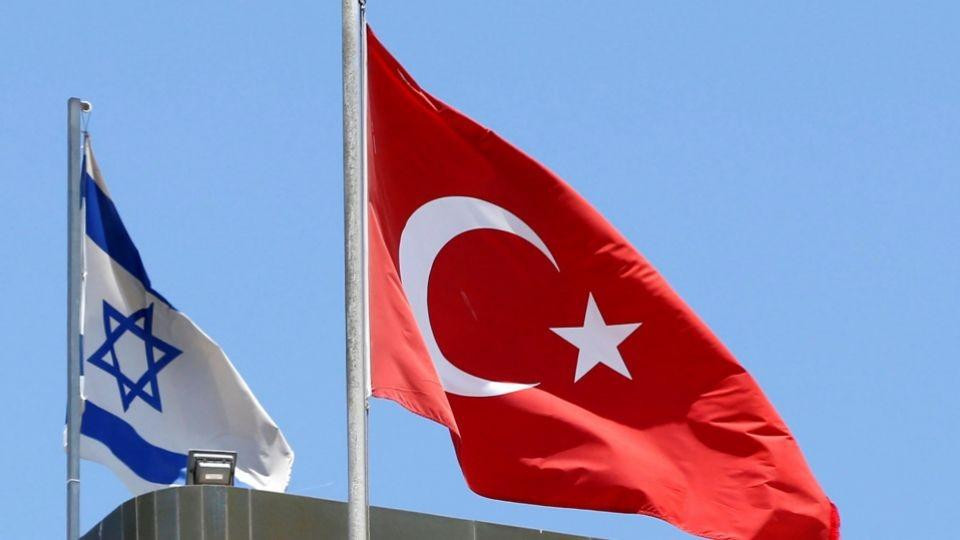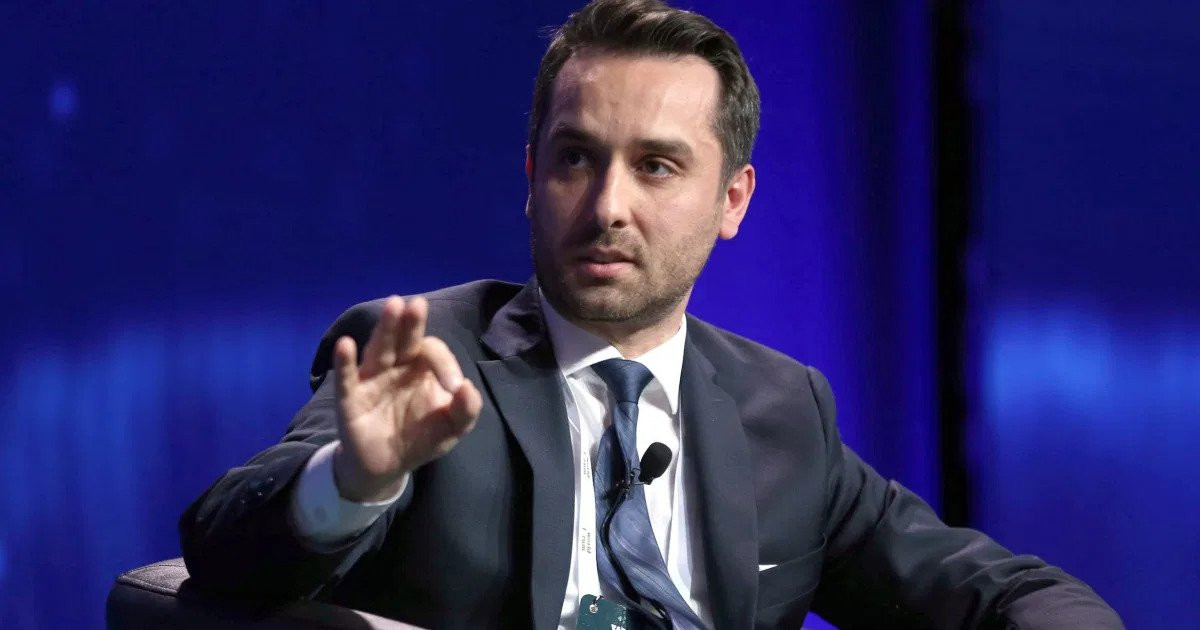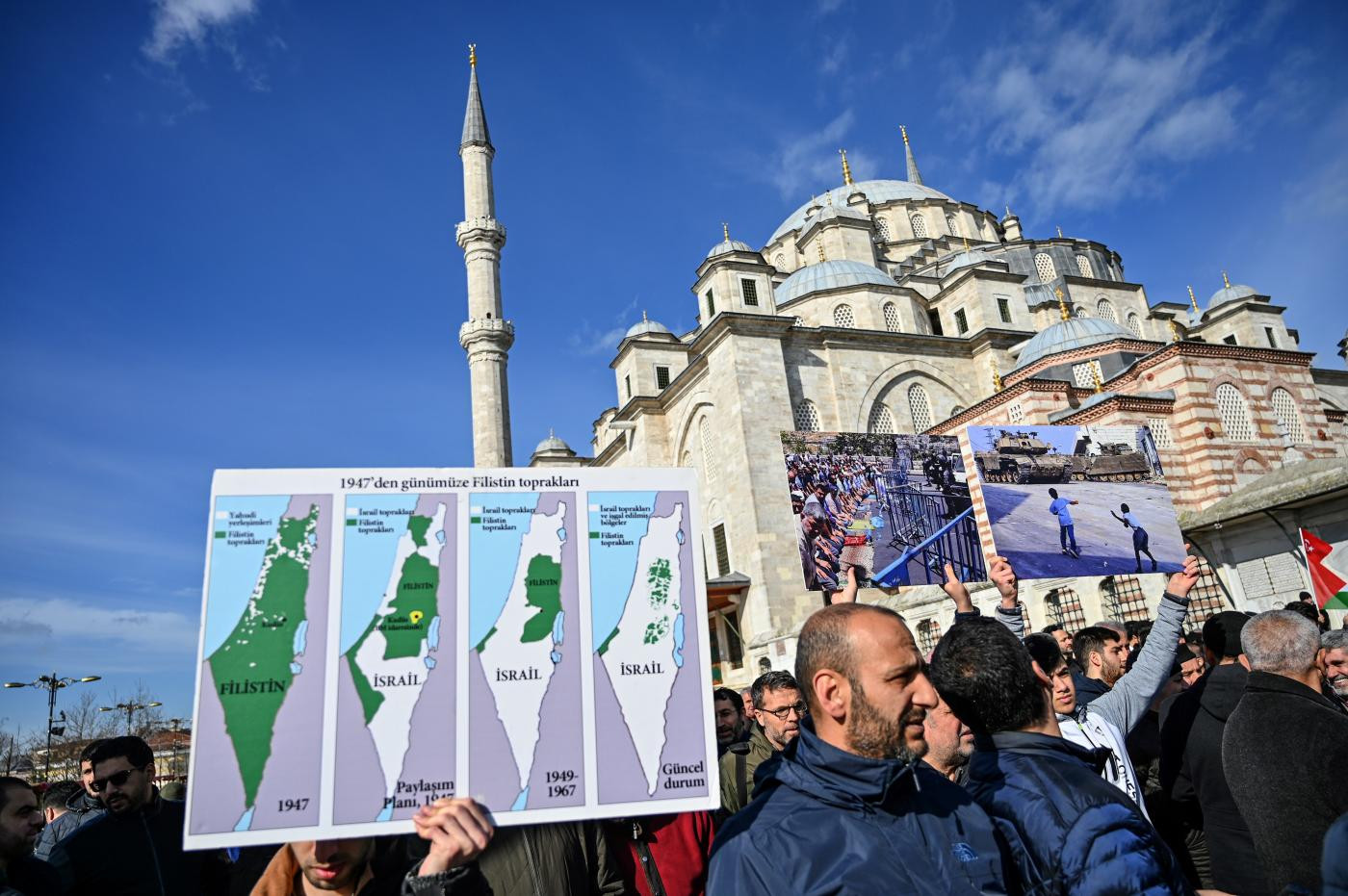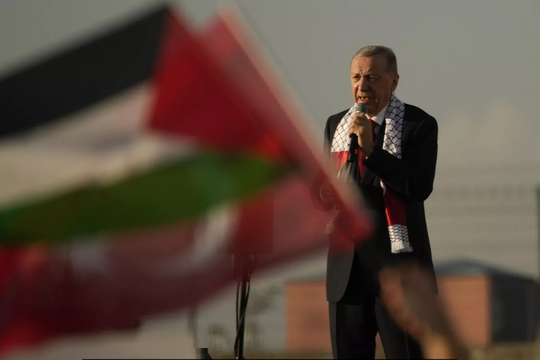Türkiye - Israel: Will reconciliation last?
(Baonghean.vn) - Having severed diplomatic relations, frequently engaged in verbal battles and disagreements on many issues, Türkiye suddenly sought to restore diplomatic relations with Israel. This reconciliation move by Ankara raises many questions about the sustainability of its tumultuous relationship with Tel Aviv.
Ankara "gives in" to make peace
Israel’s Moshe Dayan Institute published a special article on December 7, titled “Israel is Turkey’s neighbor at sea.” The article was written by retired professor Cihat Yayci, a close associate of Turkish President Recep Tayyip Erdogan and architect of the Turkey-Libya maritime demarcation agreement, and university researcher Zeynep Ceyhan.
High-ranking Turkish figures rarely publish articles in Israeli forums, so Professor Yayci’s article is seen as having a political purpose. Accordingly, the article proposes the possibility of signing a new maritime delimitation agreement between Türkiye and Israel, at a rather “low price” for Tel Aviv. According to the proposal, the disputed maritime areas claimed by the Republic of Cyprus should belong to Israel.
 |
| Turkish and Israeli flags fly atop the Turkish embassy in Tel Aviv, Israel on June 26, 2016. Photo: TRT World |
As predicted by some observers, just a few days after the publication of the “special” article, on December 15, Türkiye decided to appoint Mr. Ufuk Ulutas as the new Ambassador to Israel after two years of this position being vacant. This is the clearest sign that Türkiye “reached out” to make peace with Israel after a period of tension. In 2010, Türkiye first severed diplomatic relations with Israel after 10 Turkish activists supporting the Palestinians were killed in a confrontation with Israeli commandos.
In 2016, the two countries restored their relationship, but in 2018, the relationship between the two countries deteriorated again after the US moved its embassy from Tel Aviv to Jerusalem, Türkiye withdrew its special envoy and expelled the Israeli ambassador. Since then, the leaders of Turkey and Israel have had fierce verbal battles, with "disparaging" words for each other. Turkish President Erdogan once called Israeli Prime Minister Netanyahu a "terrorist" because of histough policy towards the Gaza Strip; while Israeli leaders criticized Mr. Erdogan for “bombing innocent civilians” - referring to military campaigns targeting Kurds in the Middle East.
After all, Türkiye's steps to normalize diplomatic relations with Israel are seen as a sign of goodwill, opening a new era of peace between the two countries. However, these unexpected changes have raised questions about the motives behind them. Even Israeli officials themselves have been cautious about Ankara's signals. Speaking at the Manama Dialogue last week, Israeli Foreign Minister Gabi Ashkenazi also expressed concern aboutTurkish involvementin the Mediterranean. The Israeli diplomat also suggested that Türkiye needs to adjust its policy in the region before taking further steps toward normalization.
The steps
In essence, the restoration of diplomatic relations between Türkiye and Israel has important political and economic significance for both countries. For Israel, a country with many enemies in the region, maintaining a stable relationship with Turkey, a large Muslim country with influence in the Middle East, will clearly gain more than lose. For Türkiye, the calculations are probably more than that. Over the past decade, although the bilateral relationship has sometimes declined, the two sides have still tried to maintain a solid "anchor" - trade. Turkey-Israel trade turnover reached 6 billion USD in 2019. Israel is among Türkiye's top 10 export markets. But this is probably not the main reason why Ankara "gave in" to Tel Aviv at this time.
 |
| Mr. Ufuk Ulutas, the new Ambassador to Israel, has just been appointed after the position was vacant for two years. Photo: Getty |
Looking at the regional political landscape in 2020, it is easy to see that there have been many changes, in which Israel has become prominent with historic diplomatic victories. With the support and mediation of the US, a series of Arab countries such as the UAE, Bahrain, Morocco, and Sudan have signed peace agreements with Israel, creating breakthroughs for the Middle East geopolitical space when most Arab countries and Israel have always viewed each other as "the moon and the sun".
Israel’s push into the Arab world is unlikely to stop, and this will certainly force Türkiye to make appropriate adjustments. By appointing an ambassador to Israel, Türkiye has shown its stance on the side of many Arab countries that want to normalize relations with Israel.
In addition, although the tensions between Türkiye and Israel do not involve the United States - their ally - the reconciliation between the two sides has the shadow of Washington. Remember in 2016, Ankara and Tel Aviv untied the knots of disagreement, moving towards normalizing relations.there was a voice of encouragement from the US. At present, although the US has not yet intervened in the dispute between the two allies, Turkish President Erdogan is probably worried about the tougher policy stance that the new US administration is expected to apply to Ankara.
Turkish experts and journalists warn that President-elect Joe Biden may punish his Turkish counterpart for his military operations in Syria in 2019 and even pressure Ankara on issues related to human rights and freedom of speech. Therefore, “warming up relations with Israel could soften Washington’s new policy,” said an anonymous regional diplomat. Another important consideration is Turkey’s need to rally support on maritime disputes in the Mediterranean. In short, regional turmoil is an important factor for Turkey to accept easing tensions with Israel.
 |
| People hold a timeline map of Palestine and Israel during a protest at the Fatih Mosque in Istanbul. Photo: AFP |
Obstacles to normalization
There are many reasons why normalization between Türkiye and Israel could be difficult. In fact, normalization at this point may be a temporary solution. Israel and Türkiye still maintain different policies on important issues of mutual concern. Prime Minister Netanyahu’s government has repeatedly called on Türkiye to stop supporting Hamas, which Israel considers a terrorist group. Although Turkey has never confirmed that it funds Hamas, Israel’s internal intelligence agency, Shabak, has reported that funds from the Turkish Coordination and Cooperation Agency have been used to fund Hamas.
For its part, Türkiye, a country that supports a two-state solution forconflictbetween Israel and Palestine, also has its own demands on Israel. Ankara's ultimate goal is to make Tel Aviv abandon unilateral steps including building settlements in the occupied territories and accept a two-state solution. The fact that the new Turkish ambassador to Israel is close to President Erdogan and has a pro-Palestinian stance is also considered by Ankara.
It seems that when both sides have different views and mutual doubts, even if the relationship is normalized, it will be difficult to have any real changes. Just a few "back and forth" clashes can easily lead to a return to a state of tension!

.jpg)

